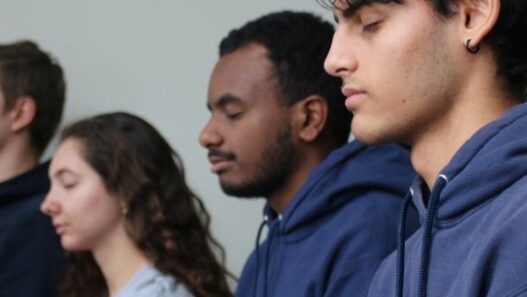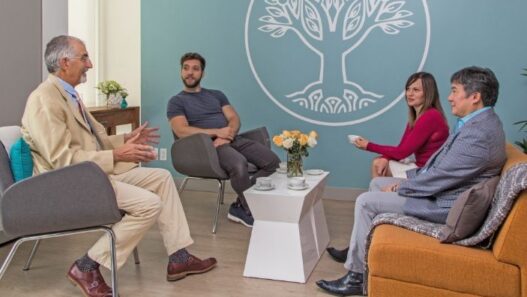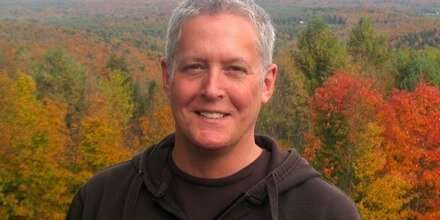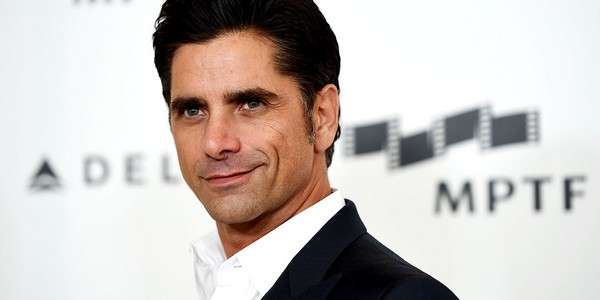Lee Chesnut has always been drawn to music, calling it his ‘very first love’.
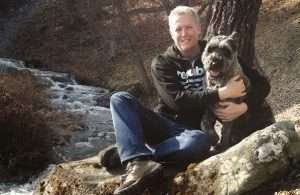
Based in Barnard, Vermont, Lee now travels across the country as a consultant for Republic Records, the top charting label of Universal Music. And along the way, he has picked up the practice of the Transcendental Meditation technique, the perfect silent counterpart to all the sounds of stages and studios.
Lee, what project are you currently working on?
LEE CHESNUT: Republic Records placed me on the NBC show “The Voice” back when the first season started in 2011. So that’s what I’ve been doing for the past four years.

“My thoughts, my conscious mind, my opinions… all that has to settle down for me to really be in the present. Only then am I at my most receptive and can hear what I’m being offered,” says Lee about his job as a music consultant and producer.
I go out on the road when we are casting the participants. Once the singers are on the show, I’m involved in the process of recording all the music that the singers sell on iTunes while the show is on air.
And then finally we make an album of original music with the singer who ends up winning the season.
What have been your personal highlights when working with these young talented singers? Any memorable ‘wow!’-moments?
LEE: The most gratifying part of this job has been when I’ve been able to help a performer let go of their fears, anxieties, and stage fright and instead just embrace the joy of performing. “Get out of your head and come into the moment.”
You’ve been practicing the Transcendental Meditation technique for over a year now. It seems that music and TM go well together, at least deciding by the long list of musicians, songwriters and producers who do it.
LEE: There may be some connection there, for sure. Meditation is a practice of being silently present in the moment. That’s when I believe one is also most in touch with one’s creativity and pure potential.
You often hear not only artists but also athletes, for example, talking about how they are ‘in the zone’. I think that meditation puts you in that zone, or at least presents you with an opportunity to enter it. Things just begin to flow then.
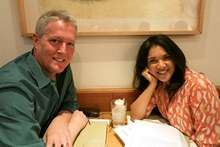
And that’s what I’ve found about creativity. It doesn’t come from forcing and straining and trying really hard. I think it’s more about relaxing and letting go until it all just starts pouring out of you. I believe I once read an interview with Tom Petty where he was saying he almost feels guilty for taking credit for writing songs, because he really doesn’t know where they are coming from.
Do you feel ‘in the zone’ when you’re sitting down in meditation?
LEE: I have to admit that the beginning part of all my Transcendental Meditation sessions is always a bit jumbled and jumpy. It takes my mind a while to settle down.
My nature – and even if you look at my astrological birth chart which has Gemini sun, Gemini moon, Gemini mercury in almost all its aspects – it’s all about thinking. It’s like the restless butterfly moving from flower to flower! (laughs) So learning meditation was definitely … an interesting experience for me. It almost seemed to run against my nature.
Yet there was this deeper part of me that thought right away, ‘Okay, fine. That’s the way your mind operates, but your mind is only just a tool.’ It’s not the one calling the shots. I appreciate the way my mind is, its effectiveness; and I’m also thankful for having learned a technique that allows me to turn it off and let it settle down. Transcendental Meditation makes me calm and centered which is all very, very good.
So you’ve overcome the ’20-minutes-blues’ – your mind telling you how many ‘more useful’ things you could do instead of sitting down and doing ‘nothing’ for 20 minutes?

CLICK on image to watch David Lynch’s music video for “Wicked Game”
LEE: Yes, especially when I was first learning it was quite hard to silence that voice! It definitely tried to get in there and insist that valuable, precious time was being wasted. But I eventually learned to just smile when I hear that voice, and let it drift away.
That’s a fantastic, truly wise way of approaching it. You looked at this very natural resistance from the point of view of acceptance. You let that voice be, not fighting against it or anything, just going on with what your deeper instinct was telling you.
LEE: A major part in the practice of meditation, as I understand it, is taking things as they come. Wishing that things were different from how they are is not going to change anything.
Now, I’ll admit that when I first started reading about TM and people’s first experiences with it, I would sometimes feel jealous. Every now and then you stumble across someone describing how the very first meditation they ever had was like, you know, they just went all the way down, immediately, and it was an amazing and surreal experience. Reading that I used to feel very envious!
When I first started meditating, I was thinking, ‘Wow, I must not be very evolved… That’s not happening to me at all…’ But the more I kept practicing, the more I kept relaxing into the realization that my experience is ultimately the only one that matters. Whatever happens is EXACTLY what’s perfect for me at that moment.
Where do you want to be today in ten years’ time? Or does what you’ve just said put this kind of planning straight to the sword?
LEE: I’m really not sure where I’ll be in ten years. I’ve always just followed my heart, and I just trust that it’ll continue to lead me exactly where I need to go!
Thank you, Lee, for this wonderful, insightful chat!


